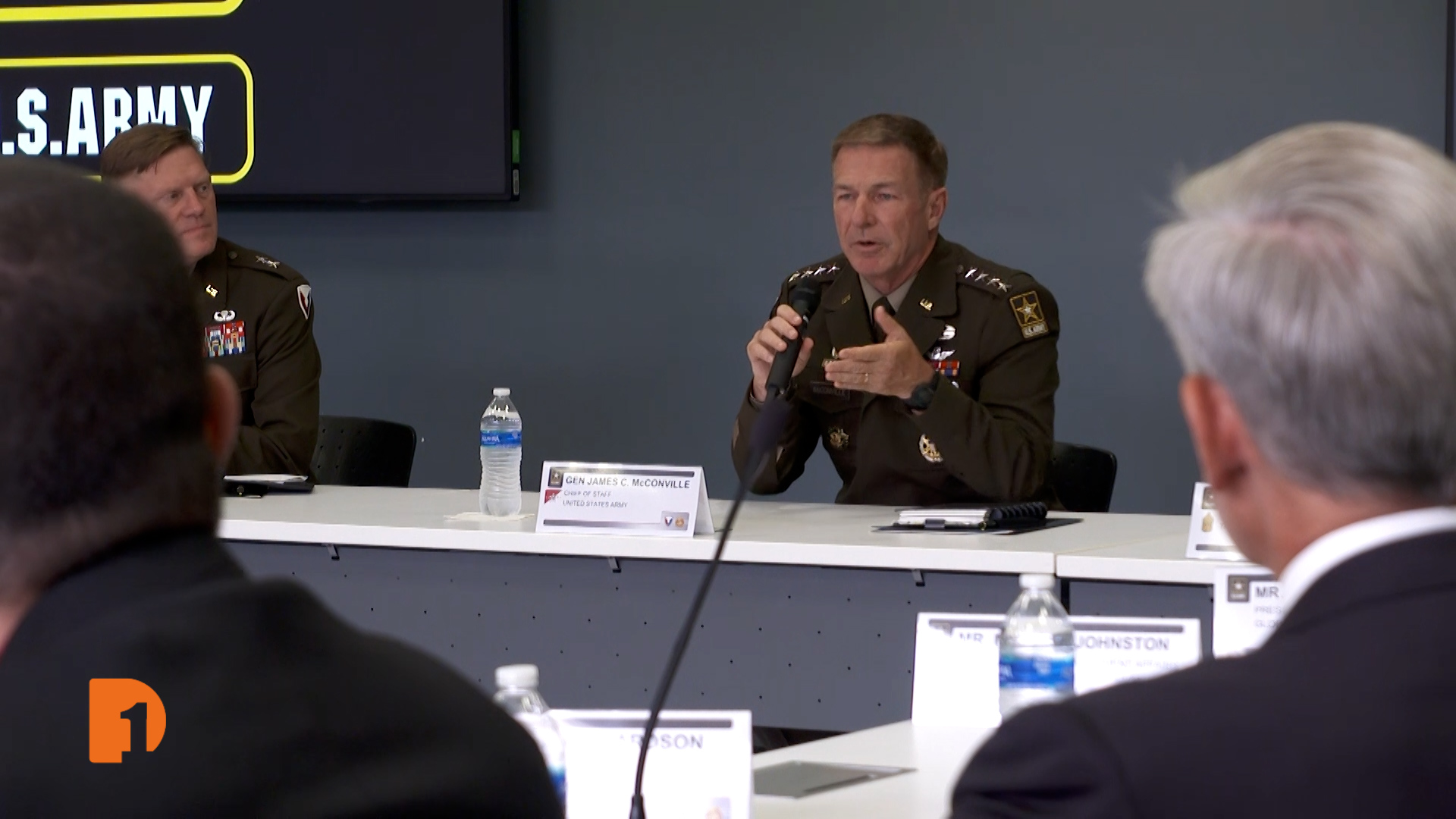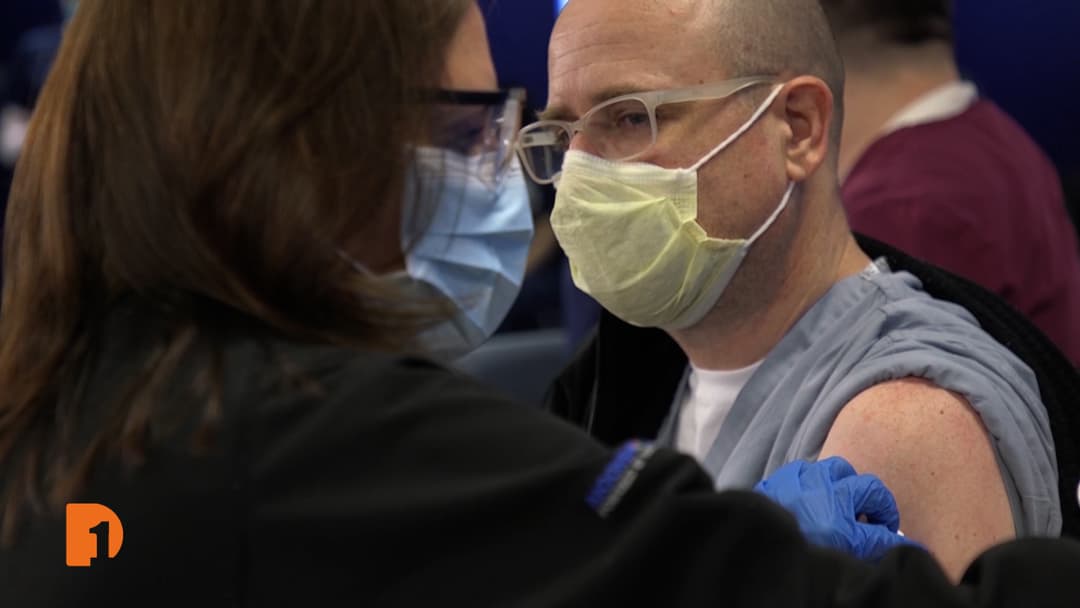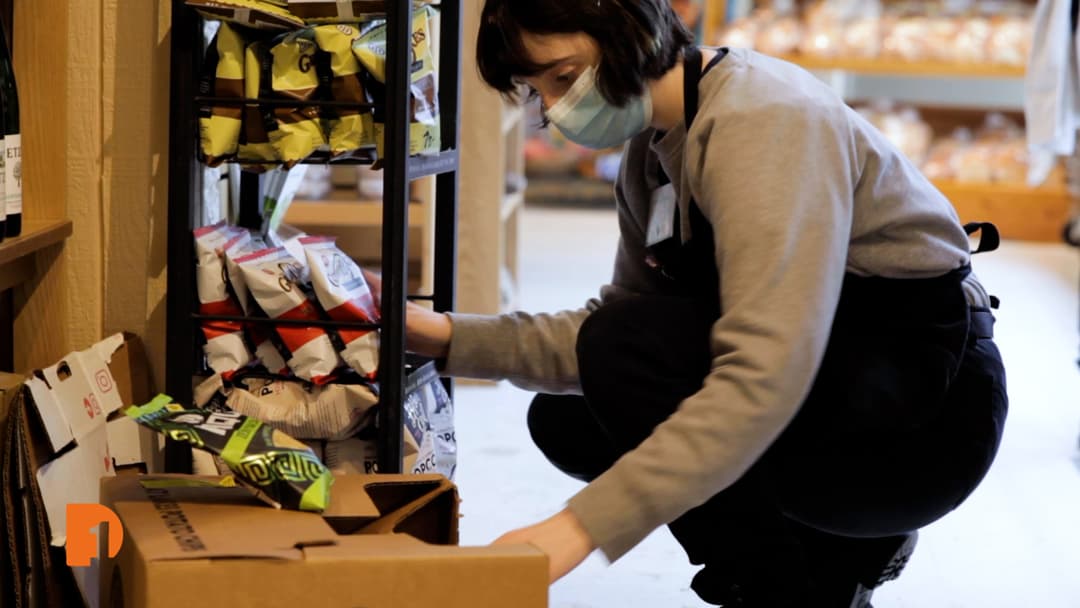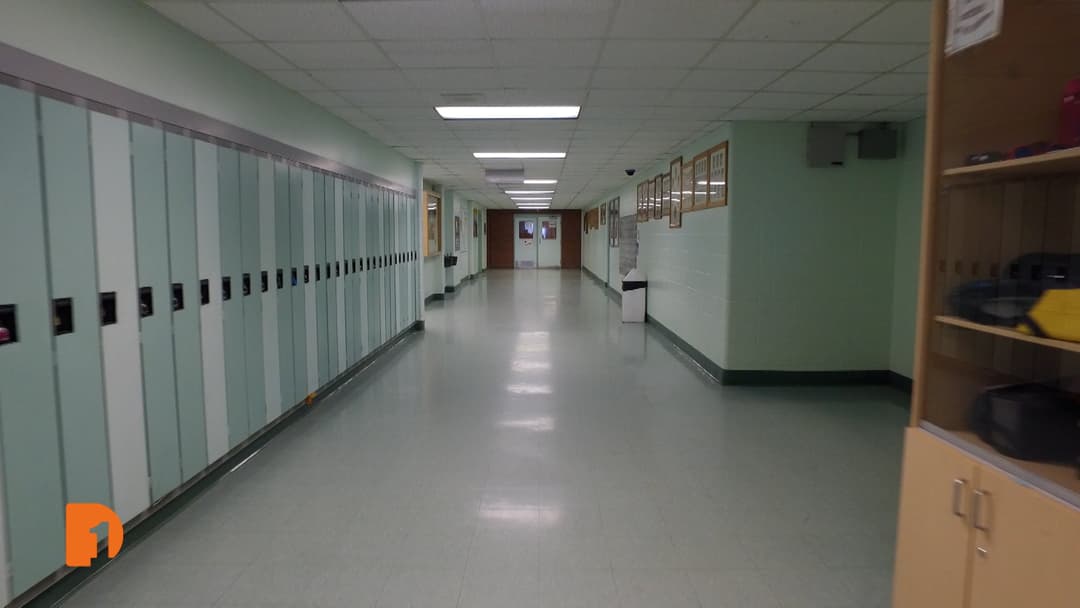Soldier Shortage: Youth obesity, academic outcomes, labor deficits affecting U.S. Army recruitment
Oct 7, 2022
The United States Army has a recruitment problem. Issues of increasing childhood obesity rates, a decline in educational outcomes, and shortages across the national labor market have caused sharp decreases in the number of new soldiers the U.S. Army has onboarded. In an effort to turn those numbers around, the Army has invested in a 90-day preparatory course to help young people interested in joining meet the physical and academic standards needed to become an Army member.
RELATED: U.S. Army Brigadier General Darren Werner Returns to Michigan to Lead TACOM Facility
One Detroit’s senior producer Bill Kubota sat down with U.S. Army Chief of Staff Gen. James McConville during McConville’s visit to the Detroit Arsenal, located in the TACOM facility in Warren, MI. There he spoke to business and education leaders about the challenges with Army recruitment the military faces.

Gen. McConville talks with Kubota about COVID-19 and the labor shortage’s impact on army recruitment, as well as the military’s investments to attract more youth to serve. Plus, Kubota hears what community stakeholders took away from the conversation.
Full Transcript:
Bill Kubota, Senior Producer, One Detroit: The chief of staff of the U.S. Army, General James McConville, paid a visit to Michigan for a frank conversation with business and education leaders about the challenges of military recruiting. The meeting at the Tecom facility, in Warren, addressed the issues of childhood obesity and a decline in educational achievement, which has led to a soldier shortage. General McConville says the Army has a 90-day program in place aimed at getting possible recruits where they need to be physically and academically.
General James McConville, Chief of staff, U.S. Army: What we’re looking to do is to inspire young men and women to serve that can meet the standards of the United States Army. We want to invest in American youth. And what we’ve done is we’ve actually stood up a future soldier preparatory course to help young men and women who want to serve that are having problems meeting the academic and the physical requirements.
We’re not going to lower standards. What we’re going to do is help them meet our standards. What we want to do is give those who have not had a chance to participate in athletics, maybe because of COVID or some other reason, the ability to get physically fit. And also, those who are having challenges passing the academic requirements, a chance to do that. And that’s what this 90-day program is all about.
We think we’ve got the experience that, with the right diet and the right exercise, we can get young men and women into the appropriate shape if they have the desire to serve. We have an academic test that recruits are required to take, and it used to be two-thirds passed. Now, only one-third pass.
And then on the body weight size or the physical fitness side, we’re just seeing a lot less young men and women. And we don’t know if that’s because of COVID the last two years, maybe sports programs, or virtual education. There are a lot of reasons why it could be. But what we do know is we want to give these young men and women that want to serve an opportunity to serve and they have to meet the standards.
Bill Kubota: What about COVID? What has that done in terms of recruitment?
General James McConville: Well, it’s made it much more difficult for our recruiters because they’re not in the high schools. And what we see is exposure to the military is extremely important if we want young men and women to come in. So, we see right now is 83% of the young men and women that come into the army are military family members. So, some would say it’s a military family business. We want it to be an American family business.
Bill Kubota: For the civic leaders meeting with General McConville, his remarks opened their eyes as to how the nation’s labor shortage has impacted the military. It also provided insight as to how the Army is hoping to attract more young people.
Lorrena Black, Vice President of Leadership Development, InForum: Whenever I have an opportunity to talk to a young person that’s thinking about the military, I let them know it changed my life. The best decision I ever made. I work for a nonprofit organization, InForum, and our focus is women and accelerating women in their careers. But we do have a program for female veterans called Next for Vets. And so, I facilitate that program and offer coaching to female veterans as they’re… How do they utilize the skills they gained in the military in the private sector?
Dr. Michael Balsamo, Dean of Business, Macomb Community College: I think one of the things that came out today is that there needs to be more awareness of the military and the benefits and resources that the military have to assist people who decide to take that path and really what’s beyond that. They want to be a doctor or an engineer. Really exploring those opportunities and better communicating to their parents and to the prospective students as well.
General James McConville: What we know we want in the military when it comes to attributes, we want young men and women that are resilient because they’re going to face adversity and we want them to be able to overcome that. We want young men and women that are physically and mentally fit because, again, they’re going to be challenged in the military.
We want young men and women that have character. And if they have had challenges, we have to take a hard look at what type of soldier they’re going to be because the American people have got to trust us. We’re the people with guns. So, you want to make sure that you can trust the United States Army. And quite frankly, I believe you can, and I believe that we have the world’s greatest soldiers.
Stay Connected:
Subscribe to One Detroit’s YouTube Channel & Don’t miss One Detroit Mondays and Thursdays at 7:30 p.m. on Detroit PBS, WTVS-Channel 56.
Catch the daily conversations on our website, Facebook, Twitter @DPTVOneDetroit, and Instagram @One.Detroit
View Past Episodes >
Watch One Detroit every Monday and Thursday at 7:30 p.m. ET on Detroit Public TV on Detroit Public TV, WTVS-Channel 56.
Stay Connected
Subscribe to One Detroit’s YouTube Channel and don’t miss One Detroit on Thursdays at 7:30 p.m. and Sundays at 9 a.m. on Detroit PBS, WTVS-Channel 56.
Catch the daily conversations on our website, Facebook, Twitter @OneDetroit_PBS, and Instagram @One.Detroit
Related Posts
Leave a Reply
Your email address will not be published. Required fields are marked*




























